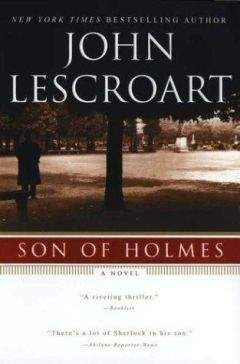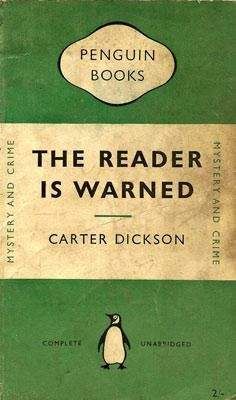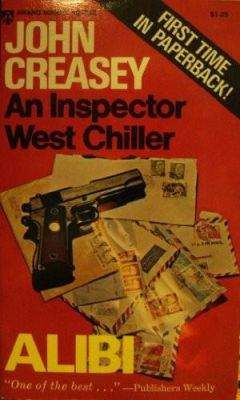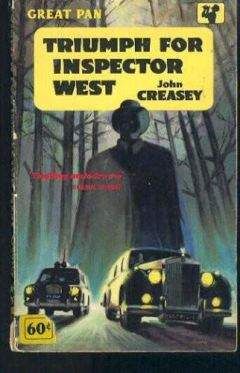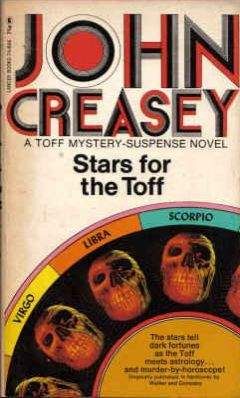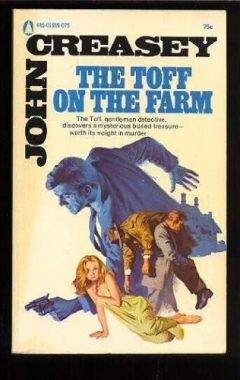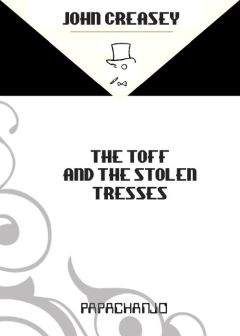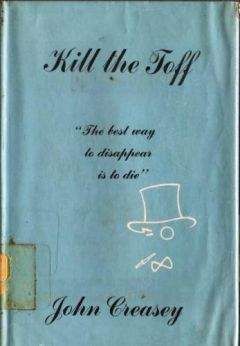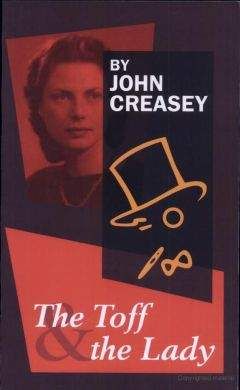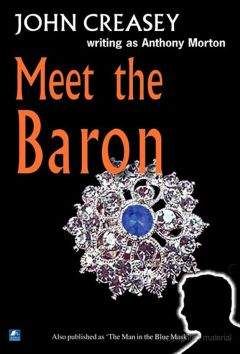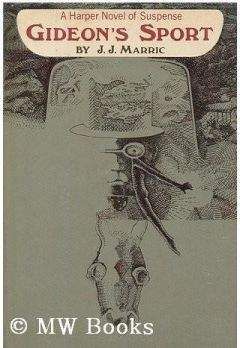John Steinbeck - Once there was a war
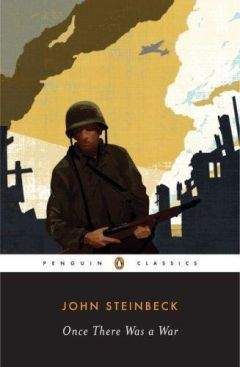
Скачивание начинается... Если скачивание не началось автоматически, пожалуйста нажмите на эту ссылку.
Жалоба
Напишите нам, и мы в срочном порядке примем меры.
Описание книги "Once there was a war"
Описание и краткое содержание "Once there was a war" читать бесплатно онлайн.
These are the things that he hears. The papers are full of it, the letters from home are full of it—quarreling, anxiety, greed. And, being a soldier, he cannot complain. He is forbidden to complain. You cannot have that kind of thing in an army. He is not cynical, but he is worried. He wants to get this war over with, and to get home to find what they have done to his country in his absence. The Four Freedoms define what he wants but unless some machinery, some foundation, some clear method is shown, he is likely to believe only in that freedom which Anatole France defined—the equal freedom of rich and poor to sleep under bridges.
THEATER PARTY
LONDON, July 18, 1943—It was late afternoon of the English summer and in one of London’s innumerable outlying districts the motion-picture house was comfortably filled. There were some soldiers who had been wounded and were on their way to recovery. There were women of the services off duty for a few hours. Some civilian women were there for a quick picture after shopping and there were factory workers off shift. Down in front were rows of children, crowding as close to the screen as they could get.
It was just an average afternoon at the pictures. The house was comfortably filled but not crowded. In special places were some men in wheel chairs from the hospital. The picture was I Married a Witch with Veronica Lake—a fantasy comedy wherein a New England witch of Puritan times returns to life and falls straight into the traditional bedroom comedy—neither a distinguished piece of work nor a bad one. The children loved the picture and believed it because they believe all moving pictures.
Outside there was low cloud and it looked as though there might be rain later in the evening and there had not been enough rain.
While Veronica Lake, long blond hair over one eye, sat in pajamas on a man’s bed and he worried for his good and respectable name and the children crowed with delight—ten German fighter-bombers whirled in over the coast. The spotters picked them up. The Spitfires took the air. The anti-aircraft guns fired and two of the raiders were shot down. A third crashed against a little hill. Then a crazy, ragged chase started in the gray cloud. Spitfires ranging and searching in the cloud. The raiders separated and lunged on toward London, and on the ground the sirens howled and the tremendous system of alarms and defenses went into action.
Only one of the raiders got through, twisting and dodging through the defenses. He came racing down out of the cloud and right under him was the theater. He was very low when he released his bombs. The top of the theater leaped into the air and then settled back into a rubble. The screen went blank. The raider banked his plane, whipped around, came back, and poured his guns into the wreck. Then he jerked his ship into the gray clouds and ran for the coast. And he left behind him the screaming of children in pain and fear.
The communities are organized for things like this. In a matter of minutes the rescue squads were at work; the firemen were on the ground. The squads are well trained. They forced themselves into the torn and shredded building. The broken children were carried out and rushed to the hospital, crushed and shot and destroyed. The dead ones were set aside for burial, but those who still breathed and kicked and whimpered went to the waiting doctors.
All night long the operations went on. Probing for bullets, hands and arms and legs cut off and put aside. Eyes removed. The anesthetists worked delicately against pain, dripping unconsciousness onto the masks. It went on through the night, the procession of the maimed to the hospital. The doctors worked carefully, speedily. Quick judgments—this one can’t live—kept consciousness away. This one has a chance if both legs are sliced off. Judgments and quick work.
From the depots the blood plasma was rushed In and the strength from other people’s veins dripped into the arteries of the children.
It was nine in the morning when the operating was finished. At the theater the tired squads were still finding a few bodies. And in the hospital beds—great wads of bandage and wide, staring, unbelieving eyes and utter weariness—the little targets, the seven-year-old military objectives.
Workmen were digging a great, long, common grave for the dead. Veronica Lake had flared up with the quick flash of burning film and only the reels she was wound on were left. And in the houses in the morning people were just beginning to be aware enough to cry. It was very quiet in the streets.
At a bar a tired doctor got a drink before he went to bed. His eyes were ringed with red sorrow and his hand shook as he lifted the whiskey to his lips.
DIRECTED UNDERSTANDING
LONDON, July 19, 1943—International amity, good fellowship, and mutual understanding between the British and Americans often reaches a pitch where war between the two seems very close. This is usually directed understanding, and it gives rise to some very silly situations.
Directed understanding and tolerance ordinarily begin with generalizations. Our troops approaching England are told in pamphlets what the British are like, where they are tender and where hard, what words, innocent at home, are harsh and ugly on the British ear. This has much the same effect as telling a friend, “You must meet Jones—wonderful fellow. You two will get along.” With a start like that, Jones has got two strikes on him before you ever meet him. He has to live down being a charming fellow before you can tolerate him. In this case it is even worse, because the British are told that they will like us when they just get to know us. The result is that the two come together like strange dogs, each one looking for trouble. It takes a long time to live down this kind of understanding.
The second phase of getting along is carried on in innumerable attempts to describe each other. The British are so and so. The Americans are so and so. The British are just like other people only more so. The Americans are boasters who love money. This love of money is, of course, unique with Americans. Every other people detests money. The Americans are fine, sturdy people. The British are fine, sturdy people. This is obviously a lie. There are good ones and stinkers on both sides. Setting them up doesn’t do any good. Just about the time you get a liking and a respect for a number of Englishmen, someone comes along and tells you about the English and you have to start from scratch again. This same thing, undoubtedly, happens to the English too.
The third little pitfall concerns the qualities of the fighting men. A big, rangy old mountain boy comes rolling down the street with his knuckles just barely clearing the pavement, and right behind is a Guardsman, shoulders back, chin up, nine buttons glowing like mad. Immediately the comparison is made. One is a fine soldier and the other is a lout. The fact of the matter is that they are both covering ground at the same rate, and each one could probably cover the same ground with a full pack. And then, having learned about soldierly qualities, you see a little twist-faced, wide-shouldered Tommy who walks sideways like a crab, and you realize that he’s as good a fighting man as the world had produced, but on his record, not on his soldierly bearing.
The whole trouble seems to lie in generalities. Once you have made a generality you are stuck with it. You have to defend it. Let’s say the British and/or American soldier is a superb soldier. The British and/or American officer is a gentleman. You start in with a lie. There are good ones and bad ones. You find out for yourself which is which if you can be let alone. And when you see an American second lieutenant misbehaving in a London club, it is expected that you will deny it. Or if you meet an ill-mannered, surly popinjay of a British officer, the British are expected to deny that he exists. But he does exist, and they hate him as much as we do. The trouble with generalities, particularly patriotic ones, is that they force people to defend things they don’t normally like at all.
It must be a great shock to an Englishman who is convinced that Americans are boasters when he meets a modest one. His sense of rightness is outraged. Preconceived generalities are bad enough without trying consciously to start new ones. Recently a Georgia boy with a face like a catfish and the fine soldierly bearing of a coyote complained bitterly that he had been here four days and hadn’t seen a duke. He had got to believing that there weren’t any dukes and he was shocked beyond words.
Somewhere there is truth or an approximation of it. If there is an engagement and the British say, “We got knocked about a bit,” and the Americans say, “They shot the hell out of us,” neither statement is true. Understatement is universally admired here and overstatement is detested, whereas neither one is near the truth and neither one had anything to do with the fighting quality of the soldier involved. We know that you can’t say the Americans are something or other when those Americans are crackers and long-legged men from the Panhandle and the neat business men in bifocals and shoddy jewelry salesmen and high riggers from the woods in Oregon. And it is just as silly to try to describe the British when they are Lancashiremen and Welshmen and cockneys and Liverpool longshoremen. We get along very well as individuals, but just the moment we become the Americans and they become the British trouble is not far behind.
BIG TRAIN
LONDON, July 25, 1943—Private Big Train Mulligan, after induction and training and transfer overseas, found himself, with a minimum of goldbricking, in a motor pool in London, the driver of a brown Army Ford, and likely to take any kind of officers anywhere. It is not a job the Big Train dislikes. He drives generals or lieutenants where he is told to drive them at the speed he is told to drive them. Leaves them. Waits. Picks them up. You have only to tell him what time you want to get there and he will have you there, and although the strain on you and pedestrians and wandering dogs and cats will be great, Big Train will not be affected at all.
In his position he probably knows more military secrets than anyone in the European theater of operations. But he explains, “Mostly I don’t listen. If I do, it goes in one ear and out the other. I’ve got other things to think about.” He has arrived at a certain philosophy regarding the Army and his private life. About promotion he has this to say: “If you want to be a general, then it’s all right for you to take stripes, but if you figure that maybe you personally can’t win the war, then you’re better off as a private and you have more fun.” He doesn’t like to order other people about any more than he likes to be ordered about. He can’t avoid the second, but he gets around the first by just staying a private. “Not that I’d mind,” he said. “I’d take the hooks for a job like this, but I don’t want to tell a bunch of men what to do.”
Having decided (1) that he couldn’t win the war single-handed, (2) that the war was going to last quite a long time, (3) that he wasn’t going to get home on any given day, and (4) what the hell anyways, the Big Train settled down to enjoy what he couldn’t resist.
He probably knows England as well as any living American. He knows the little towns, the by-roads, north and south, and he has what is generally considered the best address book in Europe. He talks to everyone and never forgets a name or address. The result of this is that when he deposits his colonel, two majors, and a captain at some sodden little hotel in a damp little town, there to curse the beds and the food, when the Big Train gets dismissed for the night he consults his address book. Then he visits one of the many friends he has made here and there.
The Big Train gets a piece of meat and fresh garden vegetables for supper. He drinks toasts to his friends. He sleeps in clean white sheets and in the morning he breakfasts on new-laid eggs. Exactly on time he arrives at the sodden little hotel. The colonel and the majors are exhausted from having fought lumps in their beds all night. Their digestions are ruined by the doughy food, but the Big Train is rested and thriving. He is alert and eventually will leave his officers in another tavern and find a friend for lunch.
The Big Train is not what you call handsome, but he is pleasant-looking and soft-spoken and he particularly likes the company of women, the casual company or any other kind. He just feels happy if there is a girl to talk to. How he finds them no one has ever been able to discover. You can leave the Big Train parked in the middle of a great plain, with no buildings and no brush, no nothing, and when you come back ten minutes later there will be a girl sitting in the seat beside him, smoking the colonel’s cigarettes and chewing a piece of the major’s gum, while the Big Train carefully writes down her address and the town she comes from.
His handling of women and girls is neither wolfish nor subtle. It consists in his being genuinely interested in them. He speaks to them with a kind of affectionate courtesy. Is a stickler for decorum of all kinds. He addresses all women, whether he knows them or not, as “dear” and he manages to make it convincing, probably because it is true. The result is that the women always want to see him again and, if the war lasts long enough, this wish will be granted in time. Mulligan is perfectly honest. If he should give the colonel’s cigarettes to the girl, a whole package of them, he explains this fact to the colonel and agrees to replace them as soon as he gets back to London. The colonel invariably refuses to consider such a thing, as being ungallant on his part. Of course the girl should have his cigarettes. He puts the girl at her ease, a place she has never left. Goggles at her, puffs out his chest and drives away. Big Train knows where she lives and who lives with her and he has already calculated what he will be likely to have for dinner when he calls on her.
About the English the Big Train has terse and simple ideas. “I get on all right with the ones I like and I don’t have nothing to do with the ones I don’t like. It was just the same at home,” he says. It is probable that he has more good effect on Anglo-American relations than two hundred government propagandists striving to find the fundamental differences between the nations. Big Train is not aware of many differences except in accent and liquor. He likes the ones he likes and he refuses to like for any reason whatever a man he wouldn’t like at home.
His speech is picturesque. He refers to a toothy, smiling girl as looking like a jackass eating bumblebees. He refuses to worry about the war. “When they want me to do that let them pin stars on my shoulders,” he says. “That’s what we got generals for.” Big Train Mulligan, after two years in the Army and one year overseas, is probably one of the most relaxed and most successful privates the war has seen. When they want him to take up his rifle and fight he is quite willing to do so, but until someone suggests it, he is not going to worry about it. There are good little dinners waiting for him in nice little cottages all over England. And so long as the colonel’s cigarettes hold out the Big Train will not leave his hostess empty-handed.
Подписывайтесь на наши страницы в социальных сетях.
Будьте в курсе последних книжных новинок, комментируйте, обсуждайте. Мы ждём Вас!
Похожие книги на "Once there was a war"
Книги похожие на "Once there was a war" читать онлайн или скачать бесплатно полные версии.
Мы рекомендуем Вам зарегистрироваться либо войти на сайт под своим именем.
Отзывы о "John Steinbeck - Once there was a war"
Отзывы читателей о книге "Once there was a war", комментарии и мнения людей о произведении.





